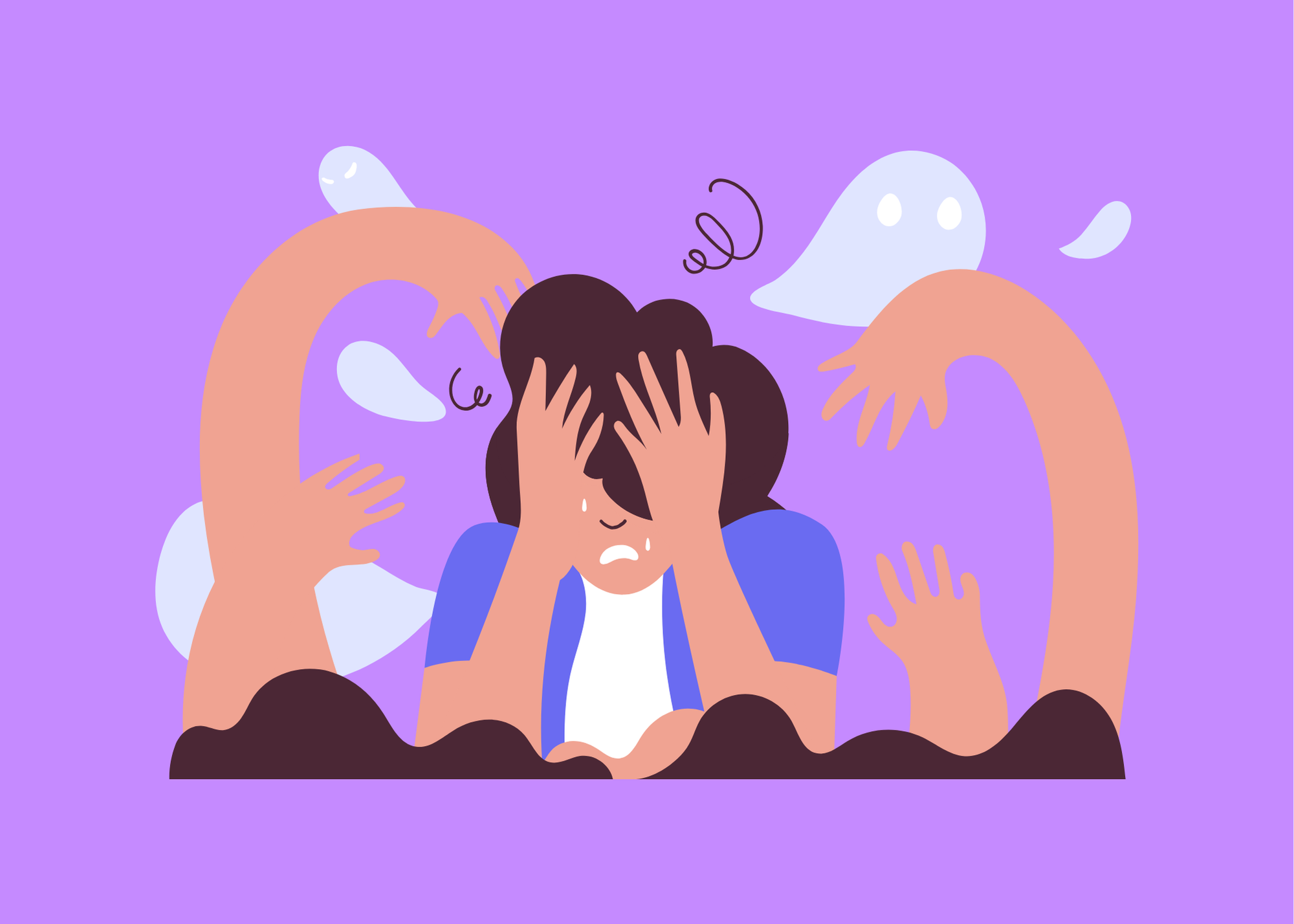Fear of Missing Out (FOMO): The Grass is Always Greener
Are you constantly wondering if you’re making the right choices?
You say yes to an invite, but halfway through the night, you’re checking Instagram and wondering if you should have gone to that other event. You finally decide to start a fitness routine, but three weeks in, you’re questioning whether a different workout plan would get faster results. You’re in a stable job, but every time you scroll LinkedIn, you start doubting if you should be doing something more exciting, more lucrative—more something.
Sound familiar? You, my friend, are caught in the cycle of FOMO—the fear of missing out.
What Is FOMO?
FOMO is the nagging anxiety that you’re missing out on something better—whether it’s a social event, a career opportunity, a lifestyle choice, or even a small decision like what to eat for dinner. It keeps you stuck in a loop of second-guessing, overthinking, and never fully enjoying where you are or what you have.
Social media fuels this feeling like gasoline on fire. You see influencers living dream lives, friends posting about amazing vacations, and colleagues announcing promotions, and suddenly your perfectly fine life feels… mediocre.
But here’s the truth: FOMO isn’t about what’s happening out there—it’s about what’s happening in your mind.
The Psychology Behind FOMO
At its core, FOMO is a form of loss aversion. Your brain is wired to avoid regret more than it is to seek happiness. The thought of choosing wrong—or not choosing at all—creates anxiety because you feel like you’re losing an opportunity, even if the opportunity isn’t real.
The brain also craves social belonging. Historically, being left out of the group meant survival risks, so your nervous system reacts to missing out with stress—even when there’s no real danger.
Under chronic stress and burnout, FOMO gets worse:
Your decision-making suffers. When you’re mentally exhausted, every option feels equally appealing and overwhelming.
You lose confidence in your choices. You’re more likely to look for external validation instead of trusting yourself.
You chase short-term pleasure. The anxiety of missing out makes you more impulsive—leading to overcommitting, overspending, or constantly switching strategies.
How FOMO Leads to Burnout and Dissatisfaction
FOMO tricks you into believing that fulfillment is out there—somewhere else, with someone else, doing something else. As a result:
You never feel satisfied. No matter what you choose, you’re always wondering if you should have picked something else.
You stretch yourself too thin. Saying yes to everything means your energy is constantly divided.
You don’t go all-in on anything. Constantly chasing “better” keeps you from mastering or truly enjoying what you already have.
You feel anxious and scattered. Your mind is always preoccupied with “what ifs” instead of being present.
How to Break Free from FOMO
If FOMO has you stuck in a cycle of stress, comparison, and chronic indecision, it’s time to take back control. Here’s how:
1. Define What Actually Matters to You
The cure for FOMO isn’t doing more—it’s doing what matters most. Ask yourself:
What do I actually value in my life, career, and relationships?
Am I chasing something because I want it—or because it looks good to others?
If I couldn’t post about this online, would I still care about it?
Once you clarify your values, it’s easier to let go of distractions.
2. Limit Social Media Consumption
Social media amplifies FOMO by showing you everyone’s highlight reels. Reduce its impact by:
Setting time limits on social apps.
Muting accounts that make you feel insecure or anxious.
Reminding yourself that people only post their best moments—not their struggles.
3. Practice JOMO (Joy of Missing Out)
Instead of fearing what you’re missing, embrace what you gain by not chasing every option. More time. More focus. More depth in your experiences.
Try this:
Next time you feel FOMO creeping in, pause and appreciate what you are doing.
Shift your focus from “What am I missing?” to “What am I gaining?”
4. Commit to Your Choices
Indecision is exhausting. Give yourself permission to make choices without overanalyzing every alternative. Set a rule:
Once you make a decision, stick with it for a set period (e.g., 30 days for a workout plan, 6 months in a job) before reevaluating.
This prevents the constant cycle of switching strategies before seeing results.
5. Create a “Not-To-Do” List
You don’t need to do everything. A not-to-do list helps you filter out what’s draining your energy. Example:
Not-to-do: Say yes to every social invite, constantly scroll job postings, compare my life to influencers.
By eliminating the noise, you create space for what truly matters.
6. Train Yourself to Be Present
FOMO pulls you into the future—wondering about what could be happening instead. Presence keeps you grounded in what is happening right now.
Use mindfulness techniques: Take deep breaths, do a body scan, or engage in sensory experiences.
When you feel FOMO creeping in, bring yourself back by asking: What’s great about this moment right now?
Final Thoughts: The Grass Isn’t Greener—It’s Just Different
FOMO convinces you that something better is always out there. But in reality, every choice comes with trade-offs, and no path is perfect.
Instead of chasing greener grass, take care of the ground beneath your feet. If you nurture what you have—your career, relationships, health—you’ll find it becomes something you don’t want to escape from.
So next time FOMO hits, remind yourself: Missing out on something else isn’t a loss—it’s just making space for what truly matters to you.
Need Help? You don’t need to have it all figured out to move forward.
Uncertainty isn’t failure—it’s a sign you’re ready for something deeper.
💡 Let’s explore what’s next, without pressure. Book your free 20-minute consult today.
Article References
The sources cited in the article:
Verywell Mind (VM). “How to Deal With FOMO in Your Life.” VM - How to Deal With FOMO in Your Life
PsychCentral. “All About FOMO: Overcoming Your Fear of Missing Out.” PsychCentral - All About FOMO
WebMD. “What is FOMO and How Do You Deal With It?” WebMD - What is FOMO and How Do You Deal With It?
Cleveland Clinic (CC). “The Psychology Behind FOMO.” CC - The Psychology Behind FOMO
Psychology Today (PT). “The Fear of Missing Out (FOMO): Some Causes and Solutions.” PT - The Fear of Missing Out (FOMO)






